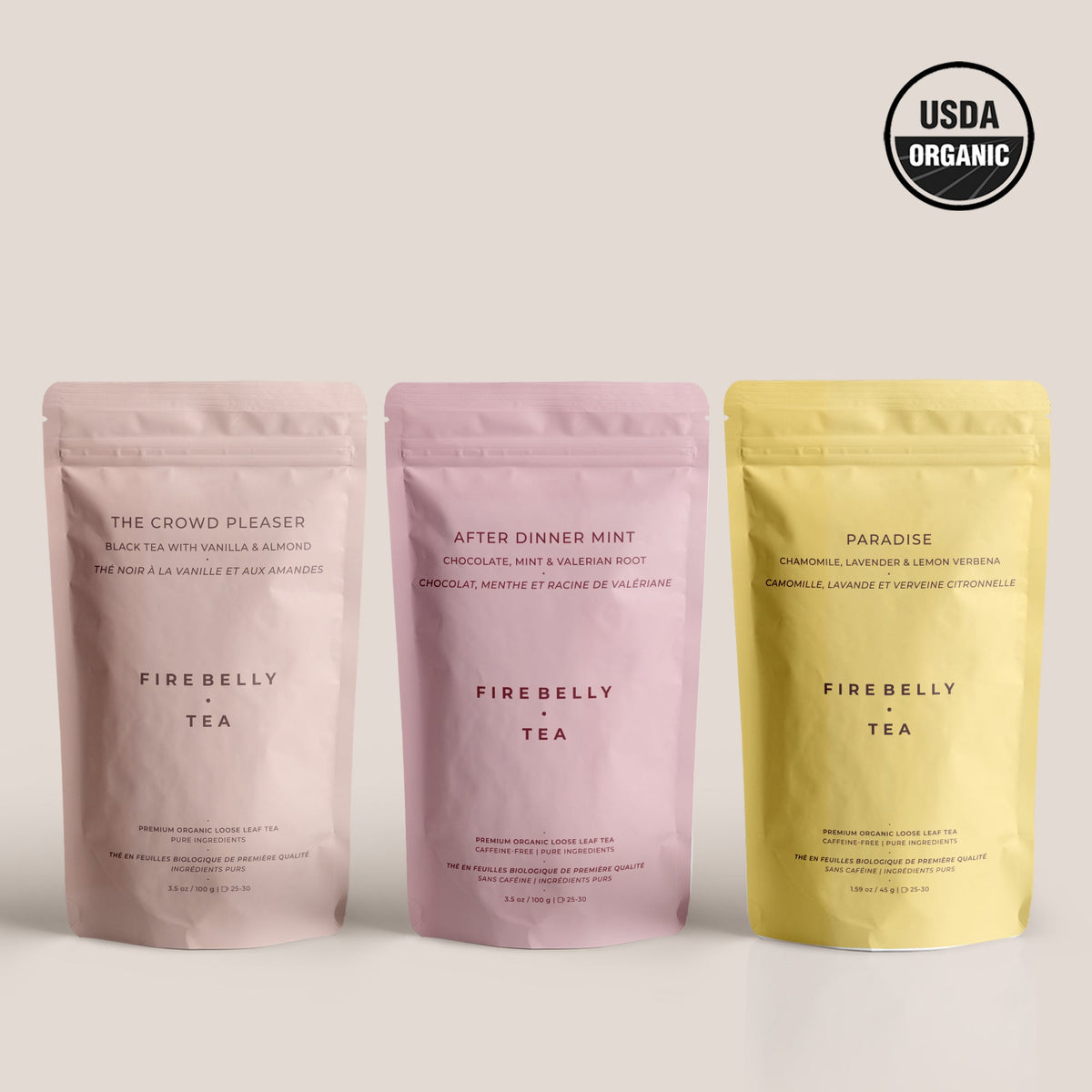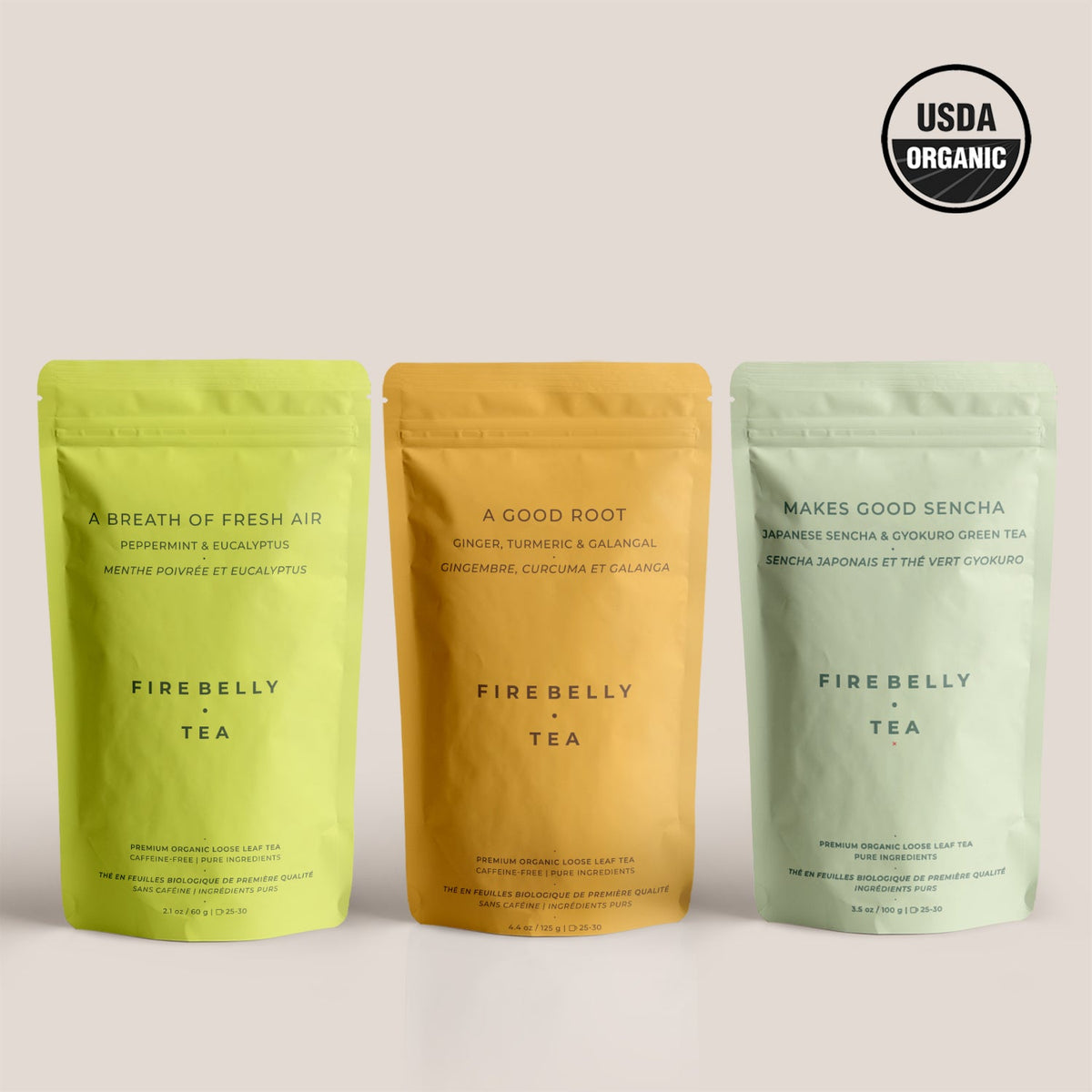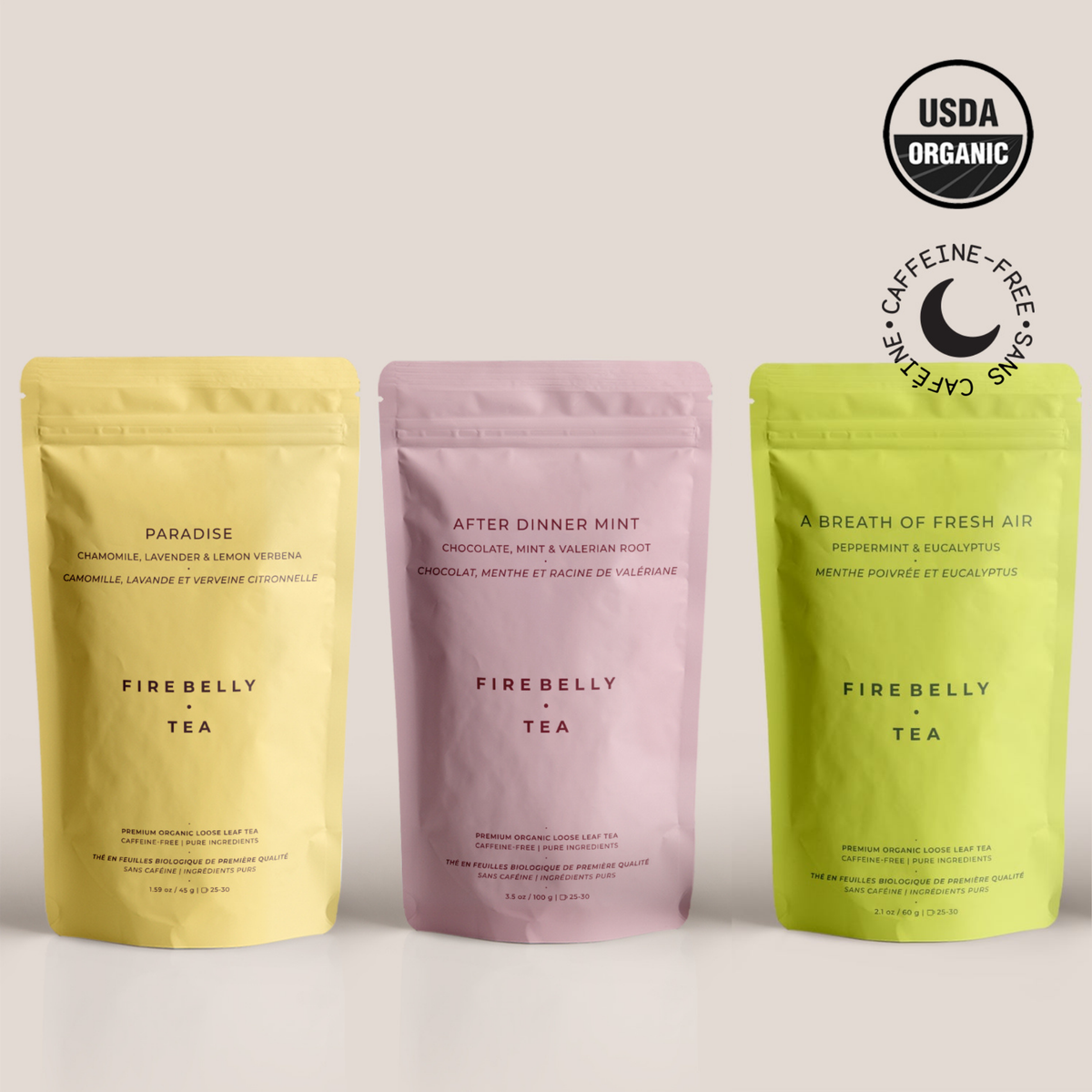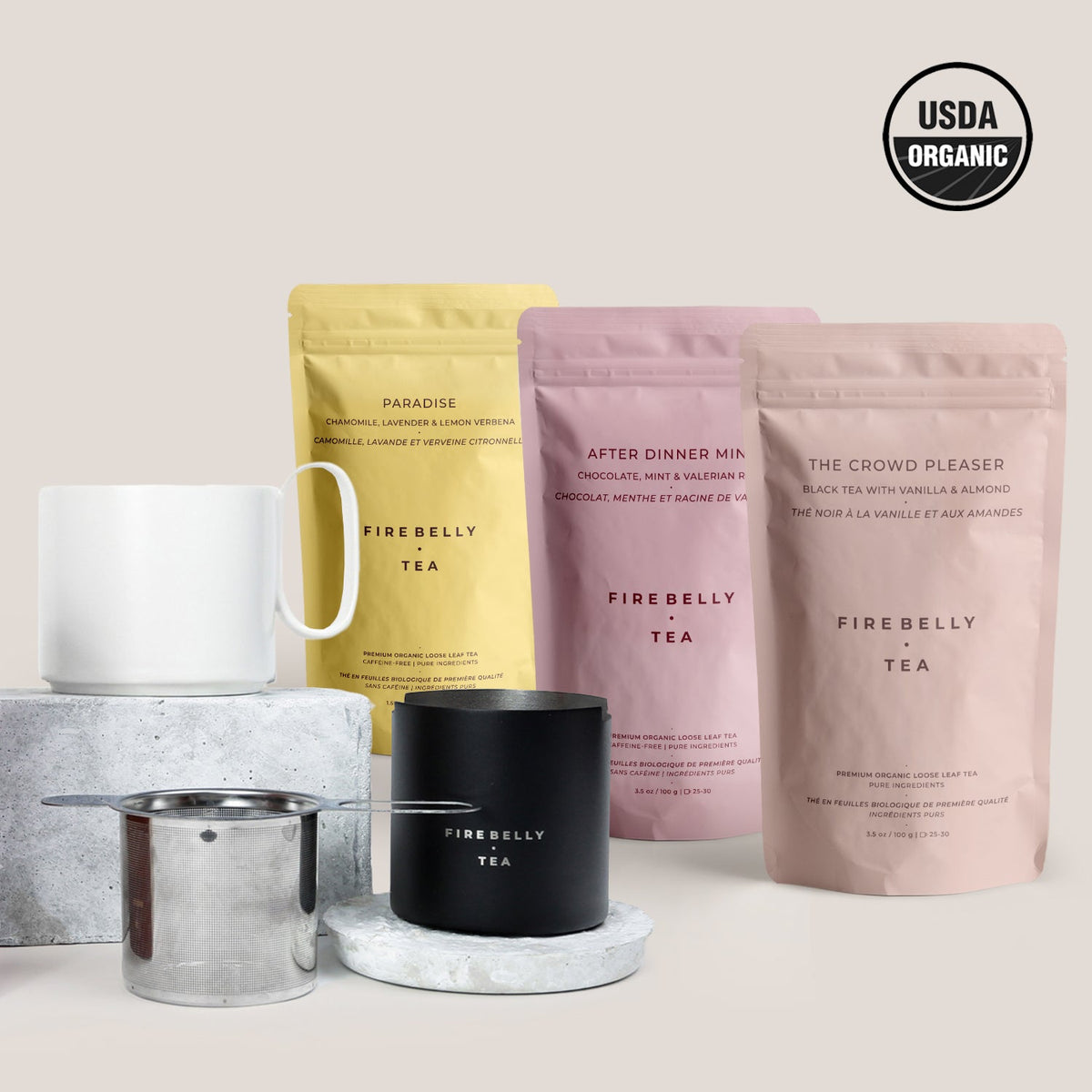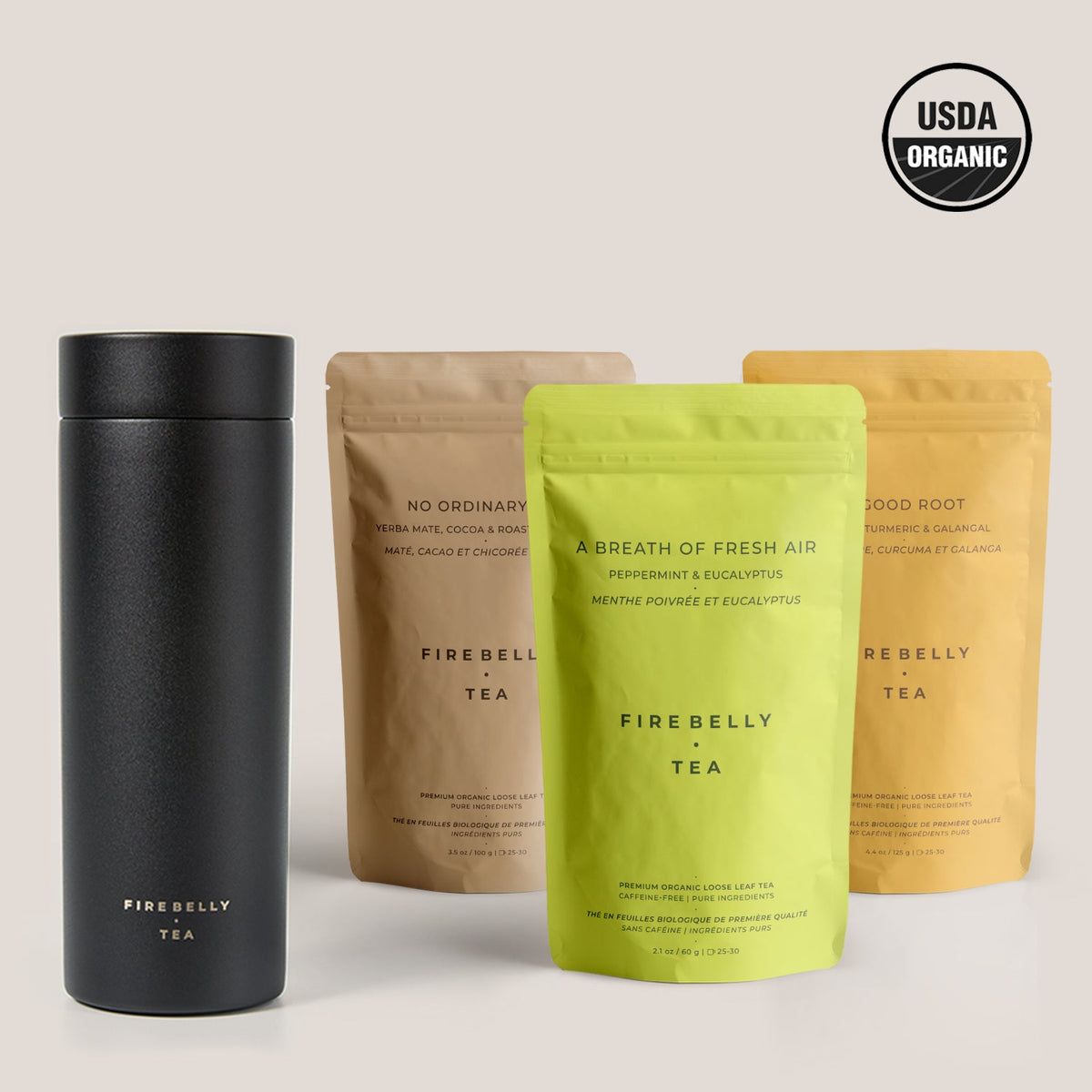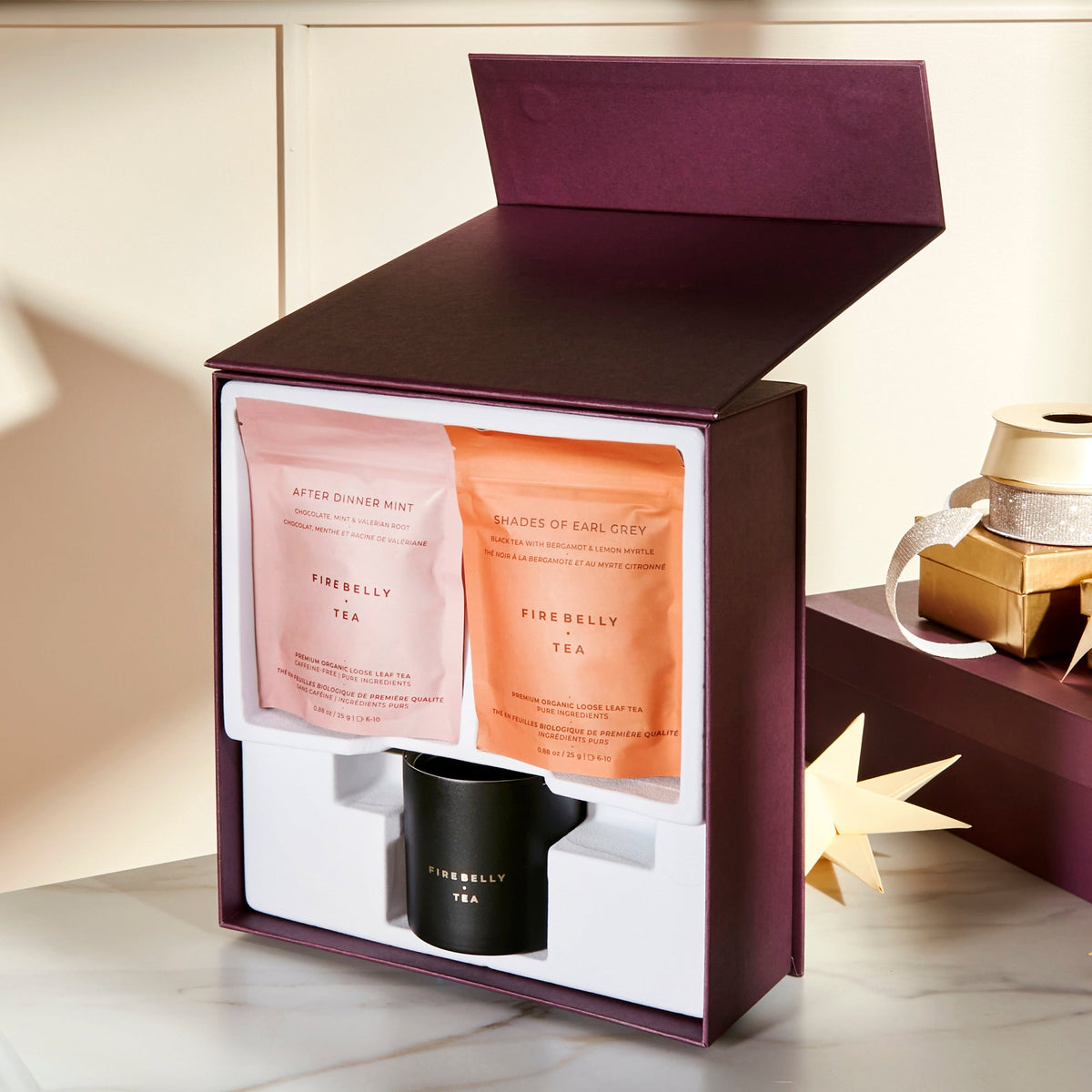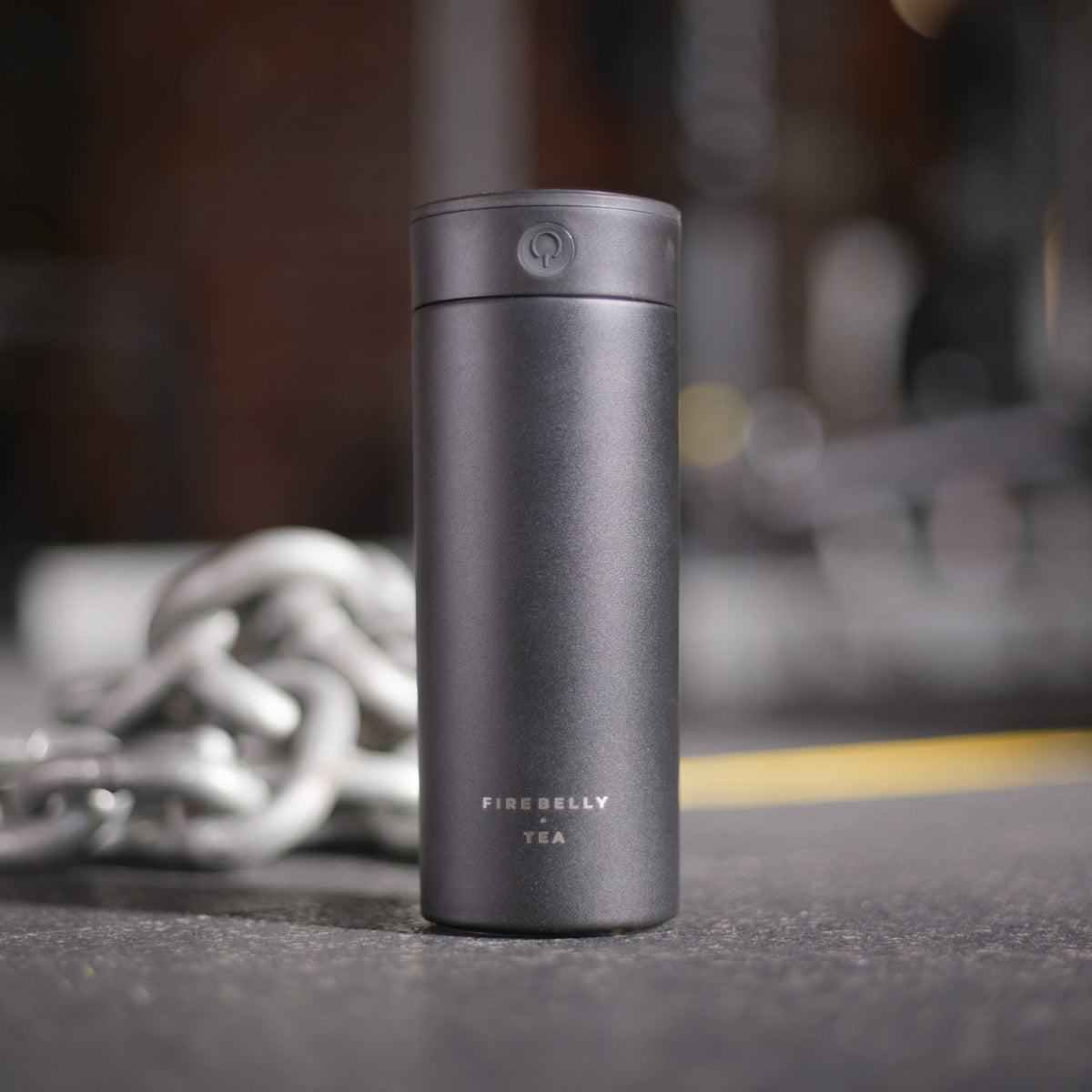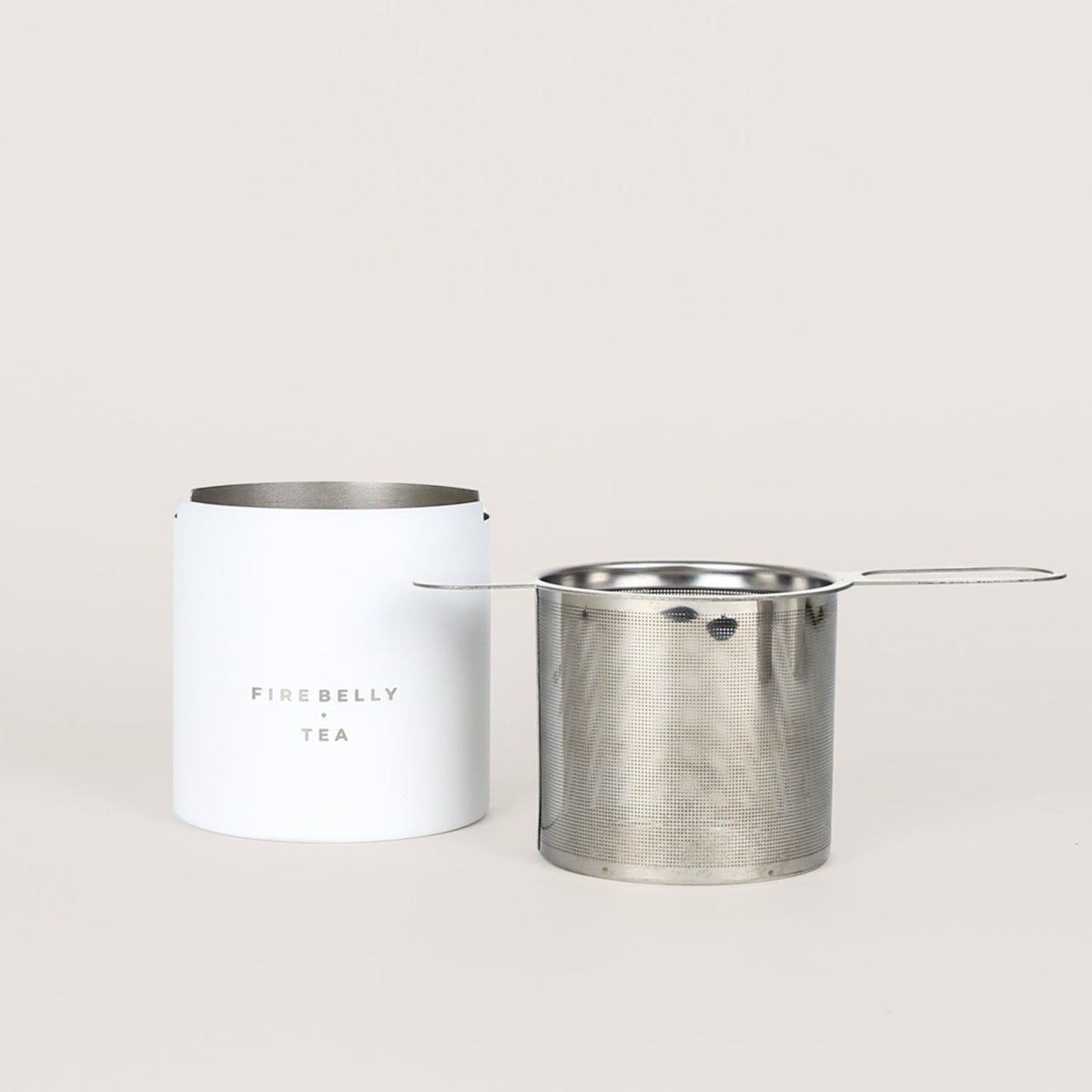Tea has been known for its health benefits for centuries. The natural medicinal properties in tea can help lower blood pressure, reduce the risk of heart disease, and improve mental clarity and focus, but did you know it can also help boost your immune system?
In recent years, scientific research has shed light on the immune-boosting properties of various teas, offering a compelling and surprising link between the simple act of drinking tea and modern wellness practices. This article takes away all the sniffles and the coughs to showcase the science behind tea and its impact on immune system health.
5 of The Best Teas to Support Your Immune System
It is important to note that you can't build a healthy immune system entirely by including teas in your diet. With a healthy diet of fresh whole or organic foods, exercise, a well-balanced emotional and mental state, and healthy teas, a healthy immune system is possible. Scientific evidence points to the medicinal benefits of tea's ability to help support a healthy immune system, especially during flu season. To help you get on track to better immune health, we've narrowed down the top immune-boosting teas you can try.
Turmeric Tea: A Golden Elixer For Optimum Immune Health
One of the top immune-boosting teas is turmeric. Derived from the rhizomes of the Curcuma longa plant, turmeric teas have been revered for centuries in traditional medicine for their potent anti-inflammatory effects and antioxidant and antibacterial properties. Turmeric's active compound, curcumin, is the driving force behind its health benefits, and when incorporated into warm teas, it becomes a golden elixir that actively supports the immune system.
One key mechanism through which these teas aid immune health is their ability to modulate the activity of the immune system's cells. Curcumin enhances the function of T, B, and natural killer cells, the frontline defenders of immune health. By promoting the proliferation and activity of these cells, turmeric tea contributes to a more robust and coordinated immune response, helping the body recognize and eliminate potential threats and help treat infections.
Recent research shows that turmeric's beneficial antioxidant prowess supports immune health by neutralizing free radicals. As a potent scavenger of these free radicals, curcumin in turmeric tea helps protect immune cells from oxidative stress, ensuring they remain functional and ready to respond to potential threats. This way, turmeric teas are a warm and comforting ally in fortifying the body's defenses, keeping your cells in tip-top shape.
Green Tea: Nurturing the Body's Defenders
Green tea, derived from the tea leaves of the Camellia sinensis plant, stands out as a powerhouse of antioxidants. The most notable is epigallocatechin gallate (EGCG), a polyphenol with potent anti-inflammatory and immune-modulating effects. The EGCG in green teas has been the subject of numerous studies, revealing its ability to enhance the production of regulatory T cells, which play an essential role in maintaining immune system balance and preventing cell damage.
Furthermore, green tea leaves contain L-theanine, an amino acid known for its stress-relieving properties. L-theanine in green tea indirectly supports immune health by promoting a sense of calm and reducing stress. Combining antioxidant-rich polyphenols and stress-alleviating properties makes green tea one of the best immune-boosting teas.
In addition to its immune-boosting qualities, green tea plays an important role in preventing infections. Research suggests that the catechins in green tea may inhibit the growth of viruses and bacteria, contributing to a strengthened defense against common pathogens. Whether you enjoy hot or cold teas, green tea is a refreshing ally in the quest for strong immunity.
Black Tea: Empowering Immune Vigilance
While green tea takes the spotlight for its high polyphenol content, black tea, another of the teas harvested from the tea plant, possesses distinctive attributes that contribute to immune health. The fermentation process that black teas undergo alters the composition of their polyphenols, resulting in the formation of theaflavins and thearubigins. These beneficial compounds have various health benefits, including immune system support.
The theaflavins in black tea exhibit antioxidant properties that combat oxidative stress in the body. By neutralizing free radicals, these compounds help reduce inflammation and contribute to overall immune system resilience. Additionally, thearubigins in black tea have demonstrated the ability to modulate immune cell activity, enhancing the body's defense mechanisms.
Research suggests that black tea consumption may positively impact the immune response by priming the immune system to recognize and combat potential threats more effectively. Regular intake of these teas can boost interferon levels, an essential protein with antiviral properties.
White Tea: Delicate Elegance with Immune-Boosting Prowess
Renowned for its delicate flavor and minimal processing, white tea is a subtle yet powerful ally supporting immune health. Derived from the buds and young leaves of the Camellia sinensis plant, white tea differs from other tea types because it undergoes minimal oxidation, preserving a higher concentration of antioxidants. The high levels of catechins found in white tea, particularly epigallocatechin gallate (EGCG), contribute to its immune-boosting prowess.
White tea's immune-boosting properties are rooted in its ability to boost the production and activity of immune system cells. EGCG, a potent polyphenol abundant in white tea, has been extensively researched for its immunomodulatory effects. Research shows that EGCG stimulates the proliferation of T cells, which play a central role in orchestrating the immune response. By promoting the activity of these key immune players, white tea helps fortify the body's defense mechanisms, enabling it to combat infections better and maintain overall health.
Furthermore, white tea's high level of antioxidants contributes to immune resilience by neutralizing free radicals. The abundance of antioxidants in white tea helps mitigate this oxidative stress, ensuring the immune system remains robust and responsive. As a soothing and subtle beverage, white tea becomes a delight for the senses and a gentle supporter of immune health, allowing you to flourish with every sip.
The compounds present in white tea modulate inflammatory pathways, creating an environment within the body that is conducive to optimal immune function. Embracing the elegance of white tea thus becomes a holistic approach to nurturing both the body and the immune system, fostering balance and well-being.
Ginger Tea: A Spicy Immune Defender
Different from true types of tea, ginger tea is a beloved herbal infusion with a history rooted in traditional medicine as one of the best immune-boosting teas. The active compound responsible for ginger's distinctive taste and health benefits is gingerol, a potent anti-inflammation bioactive substance loaded with antioxidant properties. As a warm and refreshing beverage, ginger tea provides a soothing ritual beyond comfort to actively support the body's immune defenses.
One of the key ways ginger tea aids immune health is through its anti-inflammatory effects. Chronic inflammation can compromise the immune system's ability to function optimally, making the body more susceptible to infections and illnesses.
Ginger tea's immune-boosting potential extends to its antimicrobial properties. Gingerol exhibits antibacterial and antiviral effects, contributing to the body's defense against pathogens. Whether sipped during cold seasons or as a year-round wellness ritual, ginger tea offers a zesty and effective way to invigorate the immune system and promote overall health.
Furthermore, ginger tea may contribute to the immune system's overall well-being through its role in reducing oxidative stress. The antioxidants in ginger, including gingerol, scavenge free radicals that can damage immune cells and compromise their functionality.
Hibiscus Tea: Vibrant Support for Immune Resilience
Another herbal tea treat, hibiscus tea, derived from the vibrant and antioxidant-rich petals of the Hibiscus sabdariffa plant, offers a burst of color, flavor, and myriad health benefits, including immune system support.
The high vitamin C content in hibiscus tea contributes to its immune-boosting properties. Vitamin C is known for supporting the production and function of white blood cells. The antioxidant nature of vitamin C in this tea also helps protect cells from oxidative stress.
Moreover, hibiscus tea may help regulate blood pressure, and its cardiovascular benefits can indirectly contribute to immune health. A healthy cardiovascular system ensures efficient circulation, allowing the immune system's cells to travel throughout the body and respond effectively to potential threats. By promoting heart health, a cup of hibiscus tea boosts the immune system overall, creating a harmonious interplay of physiological processes that fortify the body against external challenges.
Other Herbal Teas That Strengthen and Support Your Immune System
Unlike green teas and black teas, herbal teas encompass a vast array of infusions derived from various plants, each offering unique compounds that contribute to immune system health. The different types of tea you can drink to help ease cold and flu symptoms such as sore throats and runny noses are plentiful. The type of herbal tea you choose to help beat the common cold and keep your immune system in check boils down to personal preference. Here are some winners when it comes to immune health from herbs and herbal infusions:
-
Echinacea Tea: One of the many teas that stand out in this regard is echinacea tea. Echinacea, a flowering plant native to the North American region, has a long history of traditional use as a herbal tea that supports immune function and is a common ingredient in many sore throat and cold medicines. Echinacea tea is renowned for its immunomodulatory effects, meaning it helps regulate and enhance the activity of the immune system's cells.
-
Elderberry Tea: The elderberry is yet another wonderful herb in the realm of the immune system's health is elderberry. Harvested from the dark purple berries of the elder tree, this herbal tea is rich in flavonoids, particularly anthocyanins, which exhibit potent antioxidant and anti-inflammation properties. These herbal tea compounds may help prevent upper respiratory infections by inhibiting the replication of viruses, keeping a sore throat at bay, and keeping your breathing in tip-top shape.
-
Peppermint Tea: Peppermint tea is an herbal tea that offers more than just a refreshing flavor; it's also one of the best immune-boosting teas. The tea's soothing properties can also relieve common cold or flu symptoms, including a sore throat or runny nose. Additionally, the menthol aroma rising from the hot water of this tea may help clear the respiratory tract, promoting easier breathing. At the same time, peppermint tea is a delightful and caffeine-free option to include in a balanced diet.
-
Licorice root tea is one of the best immune-boosting teas. Licorice root tea is derived from the root of the licorice plant, which contains bioactive compounds such as glycyrrhizin, flavonoids, and various antioxidants. Scientists have studied these antioxidants for their potential to enhance the immune system by promoting the production and activity of the immune system's cells. Licorice tea also possesses anti-inflammatory and antiviral properties, which can contribute to the body's defense against infections. Additionally, when you drink a cup of this tasty tea, it may help ease cold and flu symptoms such as respiratory issues.
In essence, herbs and herbal teas offer diverse bioactive compounds that synergistically contribute to immune harmony. As we explore the bounty of the best teas for stronger immunity, it becomes evident that they are not just soothing beverages but potent allies in fortifying the body's natural defenses.
Immune Boosting Teas: The Perfect Remedy To Tackle Cold and Flu Symptoms
Keeping cold and flu symptoms at bay requires rest and plenty of liquids. No other liquid goes down better than a hot cup of tea. Whether you enjoy herbal teas like ginger or elderberry, or true teas like black or green tea, the science behind tea and its impact on immune system health reveals a fascinating interplay of bioactive compounds, antioxidants, and immunomodulatory agents, enhancing the body's vigilance against potential threats.
The calm and relaxing ritual of tea drinking provides a ton of flavor and gives our body a much-needed boost when we're under the weather. Every cup of hearty immune system tea finds a timeless tradition of ancient herbal medicine practices stirred gently with a modern approach to health and vitality.
When getting the most out of your cup of tea, we recommend loose leaves over tea bags. This is because tea bag tea is highly processed to fine dust, removing most of the beneficial compounds and healthy properties. For the best teas, choose a high-quality loose-leaf tea for your cup. Here are some great immune-boosting teas you can try to get you into tip-top shape!
